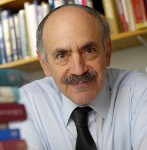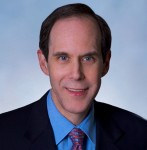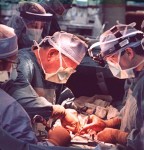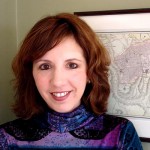2009 Honorees
Dr. Weinberg, who received his Ph.D. in biology from the Massachusetts Institute of Technology in 1969, has held research positions at the Weizmann Institute and the Salk Institute. In 1982, Weinberg helped found Whitehead Institute, joined the faculty as a professor of biology at MIT, and published his landmark paper “Mechanism of Activation of a Human Oncogene” in the journal Nature. In 1999, another major paper, “Creation of Human Tumor Cells with Defined Genetic Elements,” was also published in Nature.
Dr. Weinberg is a member of the National Academy of Sciences and received the National Medal of Science in 1997.
Provided by MIT
Robert Weinberg’s Acceptance Remarks (video)
OHSU
Dr. Druker was elected to the Institute of Medicine of the National Academies in 2003, the American Association of Physicians in 2006, and the National Academy of Sciences in 2007.
Provided by OHSU
Brian Druker’s Acceptance Remarks (video)
The Johns Hopkins University School of Medicine
Dr. Cameron obtained his undergraduate degree from Harvard University in 1958 and his medical degree from The Johns Hopkins University School of Medicine in 1962. All of his training in General and Thoracic Surgery was obtained at The Johns Hopkins Hospital. Dr. Cameron has had a long-standing interest in alimentary tract diseases, and specifically in pancreatic cancer. He has resected more patients with pancreatic cancer, and has done more Whipple resections than any other surgeon in the world. He has been a leader in Alimentary Tract Surgery for many years. National leadership positions held include being President of the Society for Surgery of the Alimentary Tract, President of the Southern Surgical Association, President of the Society of Clinical Surgery, President of the Society of Surgical Chairman, President of the Halsted Society, President of the American Surgical Association, and is currently President of the American College of Surgeons.
Provided by Johns Hopkins University
John Cameron’s Acceptance Remarks (video)
Wall Street Journal
Dr. George Demetri, a key-opinion-leader in the rare cancers known as sarcomas, describes Amy, “She has brought public attention to the field of oncology in a uniquely insightful way. Amy is described as having thoughtfully and emotionally written about the plight of patients with cancers, including rare cancers. When her mother suffered from gallbladder cancer, Amy travelled the road of cancer management with her mom, supporting her and writing about this with great insights. As we understand more about the complexities of cancers, we understand that each cancer is unique, and each cancer will, in some ways, represent a unique orphan-disease unto itself, even if broadly grouped under a rubric such as breast cancer or ovarian cancer or sarcomas or leukemia. Each mutation is different, and the heterogeneity of cancers is mind-boggling. It is this complexity that Amy has brought to public attention with sensitivity, intelligence, and grace.”
Provided by Amy Dockser Marcus and George Demetri, M.D.
Amy Dockser Marcus’ Acceptance Remarks (video)
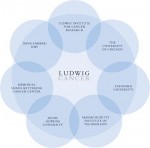 Virginia and D.K. Ludwig Fund for Cancer Research
Virginia and D.K. Ludwig Fund for Cancer Research
The Trustees of the Viriginia and D.K. Ludwig Fund for Cancer Research announced in 2006 that they would give six leading US institutions $20 million cash each, plus stock in a New York real estate holding company, to create Ludwig Centers. The $120 million gift, with further distributions from the Ludwig Fund over six years, were intended to ensure that each Ludwig Center would receive annual research funds of approximately $2 million in perpetuity. The six centers are located at the Dana-Farber Cancer Institute/Harvard Medical School, Johns Hopkins University, Memorial Sloan-Kettering Cancer Center, Massachusetts Institute of Technology (MIT), Stanford University, and The University of Chicago.
The Virginia and D.K. Ludwig Fund for Cancer Research is a foundation created by the late American billionaire, Daniel K. Ludwig. Mr. Ludwig, who died in 1992, was ranked consistently among the richest men in the world in the 1960’s and 70’s, and was ranked number one on the first-ever Forbes 400 List in 1982. He strongly believed that cancer was one of humanity’s great challenges and that a concerted worldwide effort was needed to conquer the disease. Accordingly, Mr. Ludwig gave the vast majority of his wealth to cancer research. In 1971, he established the international Ludwig Institute for Cancer Research (LICR)-which has expended more than $1.1 billion of its own funds in support of cancer research since its inception-with his international assets. Mr. Ludwig bequeathed substantially all of his US assets to endow the Ludwig Fund. The Fund’s Trustees hope that the multiple collaborations that have arisen to combine the talents of the Ludwig Institute, which is known for bringing together recognized leaders in many areas of cancer research and conducting its own clinical trials, with those of the Ludwig Centers will accelerate the translation of the most promising areas of research into new cancer therapies.

